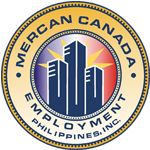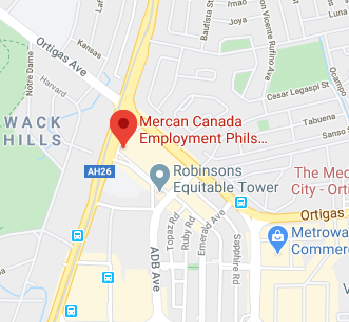Seafood and fish plant workers (low-wage cap exempt) – Temporary Foreign Worker Program
In these instructions, “officer†refers to employees of both Immigration, Refugees and Citizenship Canada and the Canada Border Services Agency.
All in-Canada visitor extension, study permit and work permit applications must be submitted electronically, with some exceptions. See the list of programs that are exempt from the in-Canada mandatory electronic application requirement.
Employers offering wages that are below the median hourly wage for their region are subject to a cap on the number of foreign workers without seasonal restrictions per location. Employers must submit 2 different Labour Market Impact Assessment (LMIA) applications per work location if they need more than the percentage allowed:
- One LMIA for the total number of foreign nationals permitted under the low-wage cap. This LMIA is typically for a duration longer than 270Â consecutive days. Work permits should be issued for the validity that is specified in the LMIA.
- One LMIA that meets labour demand by allowing access to an unlimited number of workers but restricts the work duration to a maximum of 270Â consecutive days.
Employers are allowed to apply for regular LMIAs, cap-exempt LMIAs or both for fish and seafood plant workers. Only the cap-exempt workers (270Â consecutive days or less) are subject to the processing commitment of 30Â days. This commitment applies to applications made inside Canada, outside Canada and at a port of entry if allowed.
On this page
- Eligibility for priority processing
- Documentary evidence
- Method of receipt of application
- Work permit issuance in the Global Case Management System
Eligibility for priority processing
To be eligible for 30-day processing, the foreign national must
- be applying as a fish and seafood plant worker or fish and seafood processing labourer, National Occupational Classification (NOC) code 9463 or 9618
- hold a cap-exempt LMIA indicating a duration of employment of 180 or 270 days
- Officers should check the ESDC comments field for specific dates.
- submit a complete application package, as outlined in the online document checklist or application document checklist for their area
Documentary evidence
The onus is on the applicant to provide evidence that they meet the eligibility requirements and will be able to perform the work being sought as stated in the LMIA.
Applicants for priority processing as a fish and seafood plant worker must provide the following:
- full payment upfront to expedite processing and issuance
- Applications that do not include full payment should be rejected and returned.
- a copy of the valid LMIA
- a copy of their job offer or contract
- The job offer must clearly outline the time period the applicant will be working for the company.
- evidence (if applicable) of
- previous travel
- travel and work experience in the field of employment
In addition to the basic requirements, officers should confirm that when required, applicants include
- an upfront medical exam
- a recent police certificate
Migration offices may also have certain requirements for workers based on local conditions and considerations. These are listed in the migration office-specific document checklists. The onus is on the applicant to ensure that any other applicable requirements are met.
Method of receipt of application
Outside Canada
Applications should be submitted online as per the current Ministerial Instructions. The NOC code 9463, fish and seafood plant workers, is pulled on a daily basis as part of the COVID-19 essential worker priorities.
Inside Canada
All applications should be received electronically, where possible.
If the applicant is exempt from submitting their application electronically, the application can be submitted on paper.
Employers who hire multiple temporary foreign workers should include all complete application packages in one mailing package with the label “Seasonal Fish-Plant Workers†and mail it to the following address:
Case Processing Centre Edmonton
Immigration, Refugees and Citizenship Canada
c/o Seasonal Fish-Plant Workers Station 999
55-9700 Jasper Avenue Northwest
Edmonton, AB T5JÂ 4C3
This ensures that the Case Processing Centre in Edmonton can easily identify eligible applications
Port of entry
Only temporary resident visa (TRV) exempt foreign nationals may apply when entering Canada at the port of entry.
While applications are made verbally to a border services officer, applicants are required to have a positive LMIA prior to arrival and be in possession of all supporting documents specified in the Documentary evidence.
Work permit issuance in the Global Case Management System
Information in the LMIA copy from clients must match the information found in the Employment Details tab – LMIA view of the Global Case Management System (GCMS). Officers must always refresh the screen to view LMIA information.
| Field | Selection or input |
|---|---|
| Case type | 53 |
| Province of destination | The province of destination is uploaded automatically from the work permit application form. Offices should ensure that it matches the location of employment in the LMIA view. |
| City of destination | The city of destination is uploaded automatically from the work permit application form. Offices should ensure that it matches the location of employment in the LMIA view. |
| NOC | Manually enter the NOC from the Employment Details – LMIA tab. |
| Intended occupation | The job title is uploaded automatically from the work permit application form. Officers should ensure that it matches the job title in the Employment Details – LMIA tab. |
| LMIA/LMIA-exempt # | The LMIA number is uploaded from the application form or manually from the LMIA approval letter provided by the applicant. |
| Employer | As stated in the LMIA |
| Duration | Work permits cannot exceed the duration of employment stated in the LMIA.
Officers must also check the ESDC Comments field for any specific dates for the period of employment. |
| User remarks (Mandatory) | Authorized to work for maximum accumulated period of work not to exceed 270 days between MMDD, 20XX and MMDD, 20XX as per R185(b)(iv). |


